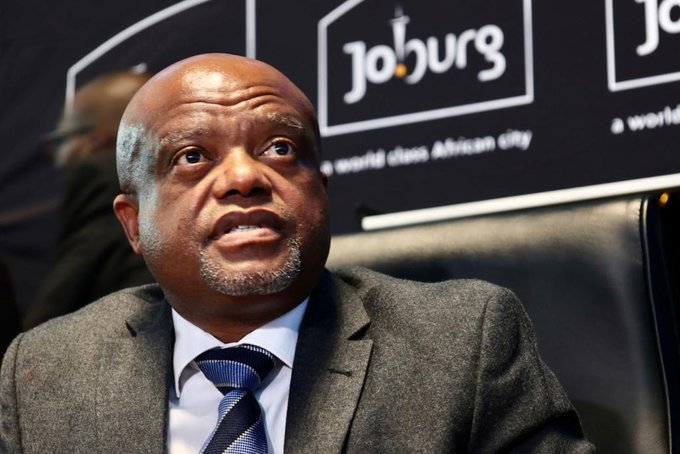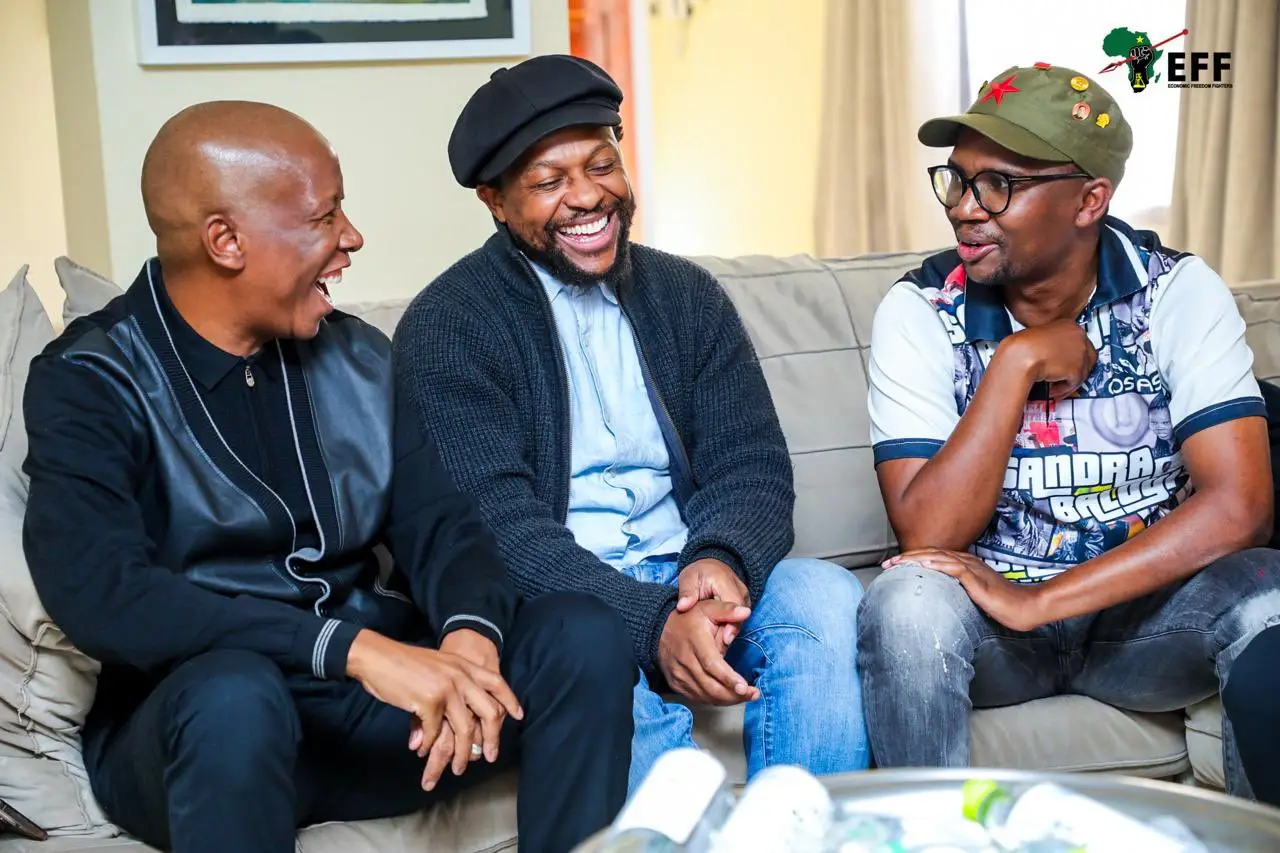On August 15, 2024, the South African political landscape witnessed a significant shift as Floyd Shivambu announced his resignation from the Economic Freedom Fighters (EFF) and subsequently joined the Umkhonto weSizwe (MK) party. This unexpected move by one of the EFF’s key figures has set off a wave of discussions and speculations across various political spheres in South Africa.
The departure of Shivambu, who has been a pivotal leader within the EFF, raises questions about the future of the party and the broader implications for South African politics. Shivambu’s role in shaping the party’s vision and strategies cannot be overstated, and his exit signifies a substantial alteration in the dynamics within the EFF. The alliance between Shivambu and prominent figures such as Julius Malema and Mbuyiseni Ndlozi has been instrumental in defining the party’s confrontational and revolutionary approaches since its inception in 2013.
His decision to join the MK party, an organization with a historical legacy rooted in the anti-apartheid struggle, introduces new complexities into the political equation. The MK party, traditionally seen as the armed wing of the African National Congress (ANC), now poised to reassert its political influence, may gain considerable momentum with Shivambu’s entry. This move could potentially attract a segment of the EFF’s constituency, thus altering voter dynamics and alliances.
This introduction aims to provide context for understanding the crucial elements at play with Shivambu’s transition. As we delve deeper into the respective sections, the broader repercussions of his departure on the EFF, Julius Malema’s leadership, the possible shifts in voter sentiment, and the emergent political narrative within South Africa will be explored comprehensively.
Floyd Shivambu’s resignation from the Economic Freedom Fighters (EFF) has sparked intense discussions within South Africa’s political sphere. Several core factors contribute to an understanding of why Shivambu chose to part ways with the party he helped establish. Notably, ideological differences between Shivambu and the EFF’s leadership form a substantial basis for his decision. Over time, divergences in viewpoints regarding the party’s strategic direction and governing philosophy widened, creating a rift that proved irreconcilable.
Shivambu’s aspiration for a new political trajectory also underscores his departure. With an inclination towards aligning with the more traditionalist and nationalist MK party, Shivambu appears to seek a political environment that resonates more with his evolving vision. This realignment speaks to a broader trend within South Africa’s political landscape, where shifting allegiances and evolving priorities are not uncommon.
The personal dynamics within the EFF leadership inevitably influenced Shivambu’s decision. Julius Malema, the prominent leader of the EFF, shared a profound bond with Shivambu, making the resignation feel like a poignant familial separation. This relationship, forged through years of political activism and shared battles, adds an emotional dimension to Shivambu’s departure. Despite their political camaraderie, differences in vision and approach eventually induced Shivambu to seek a separate path.
Through this multi-faceted lens – encompassing ideological divergence, personal aspirations, and the foundational human element of relationships – Shivambu’s resignation emerges as a calculated step towards a different political future. Additionally, it highlights the fluid and dynamic nature of political alliances in South Africa, where key figures often recalibrate their paths in response to broader socio-political currents.
Dictatorial Tendencies of Julius Malema
Julius Malema’s leadership of the Economic Freedom Fighters (EFF) has often been characterized by a centralized command structure that some argue edges towards authoritarianism. Under Malema’s helm, the party has consistently exhibited a rigid leadership style, one that critics allege stifles dissent and marginalizes alternate viewpoints. This structural rigidity has precipitated growing frustrations within the party, particularly among senior members like Floyd Shivambu.
Malema’s approach to leadership has manifested in several ways, which many perceive as illustrative of autocratic tendencies. For instance, there have been numerous reported instances where dissenting voices within the EFF have been either disregarded or actively suppressed. Prominent figures such as Mbuyiseni Ndlozi, once central to the party’s discourse, have found themselves sidelined. Ndlozi’s diminished role within the party is indicative of Malema’s apparent inclination to marginalize those who challenge or question his leadership approaches.
This centralization of control not only hinders robust internal debate but also stifles the organic evolution of the party’s policies and strategies. Critics argue that this constriction of internal democracy prevents the EFF from genuinely reflecting the diverse perspectives of its membership. The lack of room for meaningful opposition within the party’s ranks fosters an environment where sycophancy can thrive, while genuine contributions and critical analyses may be undervalued or completely ignored.
Floyd Shivambu’s departure underscores the ramifications of Malema’s leadership style. As a senior figure within the EFF, Shivambu’s exit is more than a personal decision—it is a statement on the broader organizational culture. Many analysts suggest that Shivambu’s departure is a direct consequence of the frustrations borne from Malema’s consolidated control. This poses significant questions about the long-term sustainability of a leadership model that relies heavily on the centralization of power and the suppression of dissenting voices.
Limited Room for Growth within the EFF
Floyd Shivambu’s discontent within the Economic Freedom Fighters (EFF) can be attributed primarily to the restricted opportunities for personal and political advancement. As a co-founder and deputy president, Shivambu initially played a pivotal role alongside Julius Malema in shaping the party’s policies and direction. However, over time, Malema’s centralized and domineering leadership style began to stifle any prospects for other leaders to flourish independently within the party.
Malema, known for his assertiveness and often unilateral decision-making, cast a long shadow over other senior members, including Shivambu. This environment, where dissent and alternative viewpoints were frequently discouraged, made it challenging for Shivambu to assert his vision and influence. Despite his significant contributions and leadership stature, Shivambu found himself constrained, unable to navigate his political journey without constant overshadowing by Malema.
This hierarchical and somewhat autocratic governance structure not only hampered Shivambu’s personal ambitions but also limited the broader ideological diversity within the EFF. Members were often expected to conform to the party line, primarily dictated by Malema, rather than cultivate and express divergent perspectives. For Shivambu, this lack of internal democracy, coupled with an incessant power struggle, created a stifling atmosphere not conducive to his growth and aspirations.
The decision to transition to the Mkhonto weSizwe (MK) party was thus a strategic move for Shivambu, seeking a political platform that would offer him more autonomy and the chance to spearhead his initiatives without undue constraints. The shift highlights a critical gap in the EFF’s organizational dynamics and raises questions about the sustainability of centralized control in a party that prides itself on revolutionary principles. Shivambu’s departure underscores the necessity for more inclusive and flexible leadership structures within South African political entities, fostering environments where all leaders can thrive.
Marginalisation of Other Members
Within the Economic Freedom Fighters (EFF), intra-party dynamics have often been fraught with tension, and these strains have occasionally boiled over into public view. One of the most prominent and troubling issues has been the reported marginalization and abuse of certain members, particularly Mbuyiseni Ndlozi. Ndlozi, once a leading voice within the party, has allegedly faced a series of actions that have not only sidelined him but also contributed to a broader culture of alienation within the EFF.
This treatment allegedly began with subtle sidelining escalated to more overt forms pointing to an internal power struggle that has done significant damage to the unity and morale of party cadres. Such dynamics have arguably bred a toxic environment within the EFF, affecting not just Ndlozi but other members who may feel similarly disenfranchised.
Floyd Shivambu, a prominent figure within the EFF, could not have remained unaffected by these developments. The steady erosion of camaraderie and respect within the party likely weighed heavily on him. Witnessing the marginalization of a fellow comrade like Ndlozi may have served as a stark indicator of the party’s internal dysfunctions. It is conceivable that such incidents drove Shivambu to question his own position within the organizational hierarchy and contemplate his future with the EFF.
The departure of Floyd Shivambu from the EFF, therefore, can be understood not simply as an individual decision but as one influenced by a broader pattern of behavior within the party. The marginalization of Ndlozi signify deeper issues of leadership and governance that may have prompted Shivambu to take a stand by leaving the EFF. This departure throws a spotlight on the systemic challenges within the party, heralding potential shifts in South Africa’s political landscape.
Impact on the EFF
Floyd Shivambu’s departure from the Economic Freedom Fighters (EFF) represents a pivotal moment for the party, especially given its current electoral struggles. In the 2024 general elections, the EFF managed to secure only 9.52% of the vote, a result that fell short of expectations. This outcome has prompted questions about the party’s electoral strategies and the effectiveness of its leadership. With Shivambu’s exit, these questions are likely to intensify, forcing the EFF to reassess both its internal dynamics and its broader strategic objectives.
Shivambu has been a prominent figure in the EFF since its inception, playing a crucial role in shaping its policy direction and public persona. His departure leaves a significant vacuum that may necessitate a thorough reorganization within the party. This reshuffling could lead to both challenges and opportunities; while some factions might struggle to fill the leadership void, others may see it as an occasion to introduce new ideas and strategies.
Moreover, this situation could lead to a reevaluation of the party’s core messaging. For years, the EFF has been synonymous with the fiery rhetoric and radical stances of its leaders, including Julius Malema and Mbuyiseni Ndlozi. Shivambu’s departure might prompt a shift in communication tactics, potentially moderating some of its more extreme positions in an effort to attract a broader voter base. This recalibration could be crucial for improving the party’s standing in future elections and addressing the shortcomings evident in the 2024 results.
Additionally, the internal dynamics within the EFF are set to change. Shivambu’s influence extended beyond public perception; he was also a key figure in the party’s organizational structure. His absence may lead to a power reconfiguration, where new leaders emerge and existing ones reassess their roles. This period of transition will be critical in determining whether the EFF can stabilize and redirect its efforts successfully or if it will face further fragmentation and decline.
Impact on the MK Party and Jacob Zuma
The inclusion of Floyd Shivambu into the MK party, headed by former South African President Jacob Zuma, heralds a potential shift in the political landscape of South Africa. Under the aegis of Zuma, the MK party attained an impressive 14.58% of the vote in the recent elections, outperforming the Economic Freedom Fighters (EFF). Shivambu’s departure from the EFF and subsequent alignment with the MK party brings with it significant ramifications for both parties involved.
Shivambu’s charismatic presence and political acumen are anticipated to enhance the strategic objectives of the MK party. Not only does Shivambu come with a considerable following, but his expertise in navigating South Africa’s complex political terrain will be invaluable. His longstanding tenure with the EFF and close associations with Julius Malema and Mbuyiseni Ndlozi have provided him with a unique perspective on the inner workings of South Africa’s political dynamics. His move signifies an ideological alignment that is poised to fortify the MK party’s position within the national discourse.
Mzwanele Manyi’s inclusion alongside Shivambu amplifies this strengthening effect. Manyi, known for his adept communication skills and policy-making experience, complements Shivambu’s acumen, further bolstering the leadership structure of the MK party. Together, they add depth and breadth to the party’s tactical capabilities, which could attract a more considerable portion of the electorate disillusioned with the status quo. The party’s enhanced leadership dynamic may also attract additional defectors from other factions, thereby consolidating its influence.
Crucially, the reinforced MK party stands to push more effectively for Zuma’s envisioned agenda, addressing socio-economic disparities and amplifying voices from historically marginalized communities. This development could reconfigure political allegiances and impact legislative outcomes, marking a pivotal moment in South Africa’s political evolution. The synergy between Shivambu, Manyi, and Zuma could indeed be a formidable force in steering the future trajectory of South African politics, potentially setting a new precedent in achieving broader socio-political goals.
Conclusion and Future Implications
Floyd Shivambu’s departure from the Economic Freedom Fighters (EFF) marks a significant realignment within South Africa’s opposition politics. As a founding member and deputy president of the party, Shivambu has been a prominent figure whose influence extended beyond the EFF’s core leadership, involving key engagements with both grassroots supporters and broader political alliances. His exit introduces a substantial reshuffling of roles and responsibilities within the EFF, raising questions about the future trajectory of South Africa’s political dynamics.
For the EFF, Shivambu’s departure could lead to both immediate and long-term repercussions. The party’s internal cohesion may be tested as it seeks to fill the leadership vacuum. Julius Malema and Mbuyiseni Ndlozi may need to recalibrate their strategies to accommodate this pivotal change. Short-term challenges are likely to involve stabilizing the party’s operations and maintaining its fiery rhetoric and radical policy positions. Long-term effects could potentially manifest in diminished voter support or shifts in policy priorities as the EFF adjusts to new dynamics within its ranks.
Broader implications for South African politics extend beyond the EFF. Shivambu’s departure may encourage other opposition parties to recalibrate their strategies, sensing an opportunity to attract disaffected EFF supporters and widen their electoral base. Furthermore, this development could spark a reevaluation of coalition politics ahead of future elections, potentially altering the landscape of political alliances. The African National Congress (ANC) and other major stakeholders will undoubtedly monitor these shifts closely, recognizing that changes within a key opposition party can impact overall voter sentiment and strategic positioning across the political spectrum.
As the political landscape in South Africa evolves, the departure of a key figure like Floyd Shivambu serves as a reminder of the fluid nature of party politics. This significant shift promises to redefine not only the immediate future of the EFF but also the broader narrative of South African opposition politics in the years to come.






